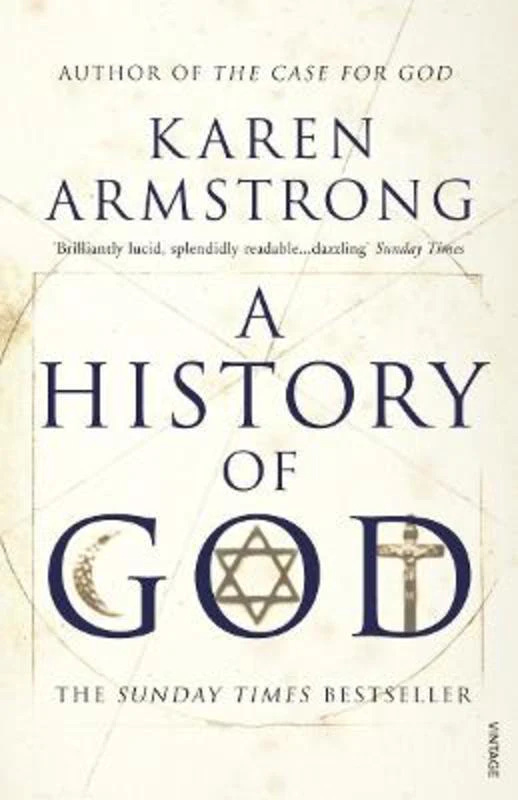What I've Been Up To: Texting with God and other theological things
This episode has ended up being rather God-themed - apologies to my atheist friends.
What I’ve Been Watching
Since my wife arrived from Turkey, we’ve been watching a lot of Turkish TV, most of which is unfortunately not available in English at the moment. One that is, is the Netflix series Kübra. This follows in the steps of other offbeat series such as Atiye (The Gift) and Şahmaran (which I discussed in an earlier post); all of these combine supernatural themes with observation of Turkish culture, though each has its own flavour. Kübra is more gritty than the others in its themes and social commentary; it’s more of a political story which plays with religious ideas.
The inspiration for the series clearly comes from a book called Levh-i Mahfuz by Burak Özdemir, a controversial figure who claims to have talked to God via his computer (the title itself brought accusations of hubris, given that in Islamic metaphysics it is the name of the record of all that has happened or is yet to come, kind of like the software of the universe). The series starts with our hero, a mechanic called Gökhan, getting a message on his phone from a stranger named Kübra saying “You are special”. Kübra is a fairly common female name in Turkey; it’s from an Arabic word meaning “great” and is related to akbar/ekber (as in Allah-u akbar — “God is great”) and kibr, meaning “hubris”, and there is a fair amount of word-play in the background. Later “Kübra” displays what seems to be supernatural knowledge, eventually leading Gökhan to the conclusion that she is actually God, or at least a relayer of messages from God. As others start to listen to his messages, he becomes a messianic figure, starting a movement to help the poor oh Istanbul which earns him the enmity of politicians after he refuses to be co-opted. All the way through, you are kept guessing as to who the real Kübra is: is Gökhan really getting messages from God, or has his phone been hacked? I won’t give any spoilers; let me just say that even if you work out what is going on, there is a twist to the twist.
If you speak Turkish, I also recommend Kızıl Goncalar for its nuanced portrayal of the closed world of religious cults and the religious-secularist divide and, for a different kind of social commentary, İnci Taneleri — not exactly a comedy, but very funny in places.
What I’ve Been Reading
I’ve been a fan of Karen Armstrong since reading her biography of the prophet Muhammed (which I reviewed earlier). I’m currently working my way through A History of God. Subtitled “The 4,000-Year Quest of Judaism, Christianity, and Islam”, this is a surprisingly readable history of the monotheistic religions (with occasional nods to Hinduism and Buddhism). Armstrong’s rather Wittgensteinian premise is that “The idea of God formed in one generation by one set of human beings could be meaningless in another. Indeed, the statement ‘I believe in God’ has no objective meaning, as such, but like any other statement it only means something in context, when proclaimed by a particular community.”
This attitude, coupled with her view (which I share) that religious beliefs are tools to motivate and enable action (both inner and outer) rather than statements of fact, means that the book has something to say even to those who have no religious beliefs, whether atheists, agnostics, or the annoyingly-named “spiritual but not religious.”
I am certainly finding it a good way to fill in the many gaps in my knowledge. For example, I have just found out that “dogma” originally had almost the opposite meaning to its current sense, the latter being closer to what was called kerygma. Dogma, as used by the founders of the Eastern Church, was more inward and inexpressible — more like gnosis, perhaps (though not, of course, Gnosticism, which the church fathers took a dim view of). I also had no idea how mystical and Neo-Platonist the early theologians of the Eastern Roman Empire were. I am currently enjoying reading about Pseudo-Denys (Denys the Menys?), whose idea of divine names reminds me somewhat of Ibn Arabi. In Armstrong's words: “Perhaps the best way of viewing Denys’s theology is as that spiritual dance between what we can affirm about God and the appreciation that everything we can say about him can only be symbolic.” Amen to that.
What I’ve Been Listening To
After all this God-talk, it seems only fair to give a plug for one of my favourite YouTubers, Filip Holm. As well as producing the wonderfully informative Let’s Talk Religion channel, Holm is a talented musician, composing middle-eastern-influenced music that back in the day we would have called “trippy”.



